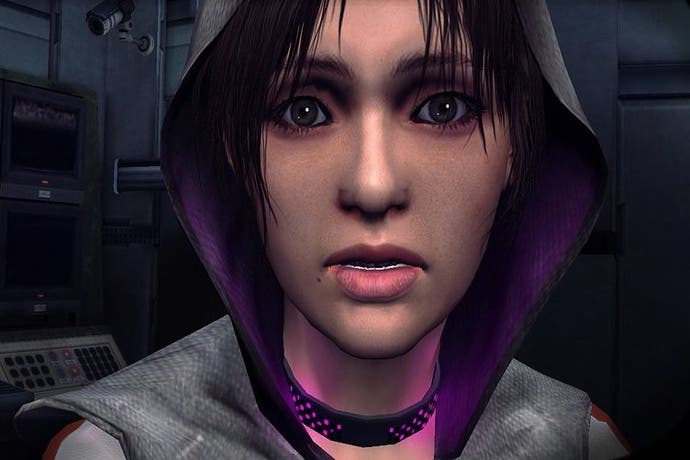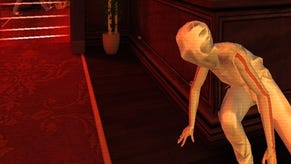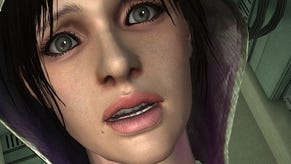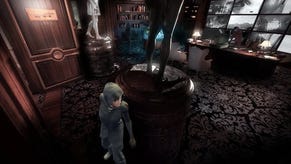Republique Episode 2: Metamorphosis review
Hope springs eternal.
When last we saw Hope, the plucky yet vulnerable star of Republique, she was scurrying around the city of Metamorphosis trying to evade a totalitarian regime. At the start of this second episode, she's still scurrying around, but things have evolved noticeably.
Metamorphosis is aptly named then, both in terms of Hope's story and the player experience. This chapter is all about transition and change, building brilliantly on the character work begun back in December as well as the solid gameplay mechanics developed by Camouflaj.
For those who didn't play Episode 1 (you can skip to play Episode 2 first, should you want to do that for some strange reason), this is a stealth game where you play as Hope's remote benefactor, hacking the security cameras which provide your view of the game world and telling her where to go and when it's safe to move. It remains a brilliant idea, making traditional stealth mechanics an organic part of the game's world and bringing the player into the fiction, as Hope communicates directly with the player, through the phone or tablet screen. It's both a controller and a window into the game.
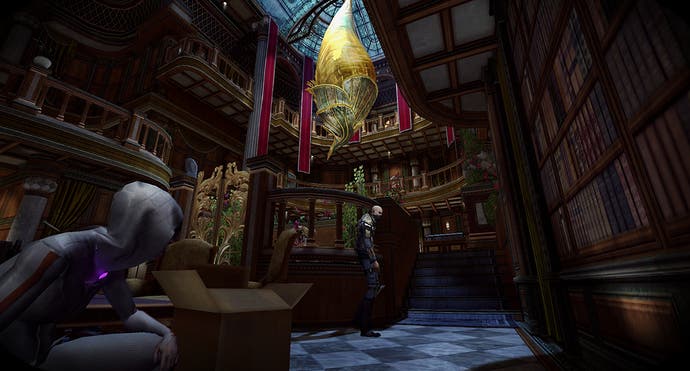
Lead designer Ryan Payton worked on both Metal Gear Solid and Halo, and that still comes across in the depth of gameplay systems and overall level of polish. There have been many mobile games that have managed to capture the look of a console release, but Republique remains one of the few to combine that with gameplay to match.
New for this chapter are some bold new additions, one of which would be a headline feature in any stealth game, regardless of platform. That would be the ARC Prizrak, a new enemy type who doesn't follow a fixed path, instead wandering the levels with a reasonable facsimile of free will. These guys also wear shock-proof armour, making them immune to Hope's taser, and come armed with tasers of their own to boot. They're a formidable challenge.
In a genre built almost entirely on using stealth as a puzzle-by-proxy, in which guards relentlessly walk in the same looped patterns, forcing the player to find the gaps to slip through, this small change has a big impact. There are still basic guards walking predictable routes, but the knowledge that there's a chaotic element which can enter the mix really amplifies all that is good about stealth gaming. The trepidation, the vulnerability, it's all heightened and you'll sometimes find yourself literally frozen in place, pondering your next move as you hear an enemy moving around.
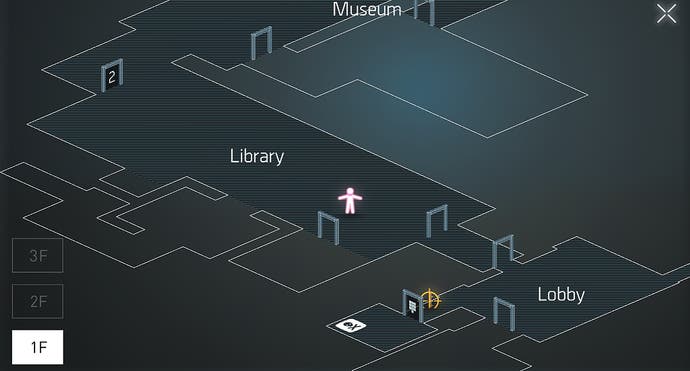
You also have the chance to obtain some new abilities which can level the playing field. One offers a prediction of where an enemy will go, giving you a limited but incredibly useful window of opportunity to escape without being spotted. Another lets you see enemies through walls, which proves even more handy and also addresses one of the minor problems with Episode 1, where you would sometimes have to keep switching cameras to keep an enemy in view. Now, you switch cameras less and can keep oriented on Hope while tracking guards.
They sound like ideas that should unbalance a stealth game, but Republique's construction is clever enough that this doesn't happen. You can only gain these abilities by purchasing them from the game's Data Broker character, and you can only gain the currency to do this by gathering intel in the field and trading it in. This almost always means taking bigger risks, and has the additional benefit of making you engage with the game's fiction more, seeking out files that flesh out the world and characters. By the time you've earned enough to buy these abilities, you'll be good enough at the game that they've become handy assists rather than vital crutches.
The changes aren't just restricted to the big bullet-point gameplay features of new enemies and abilities. There are more subtle signs of growth here. This episode takes place in the city's library, a location that is both more visually interesting and structurally challenging than the fairly linear corridors and rooms of the first instalment. This is a large and mostly self-contained space, which immediately tips the gameplay in the direction of Metroid. You'll be criss-crossing the map (which has also been improved) multiple times, but thanks to cunning construction it never feels repetitive.
Republique is a pleasant anomaly: a stealth game that breaks out of rigid patterns and an episodic game that visibly evolves and improves
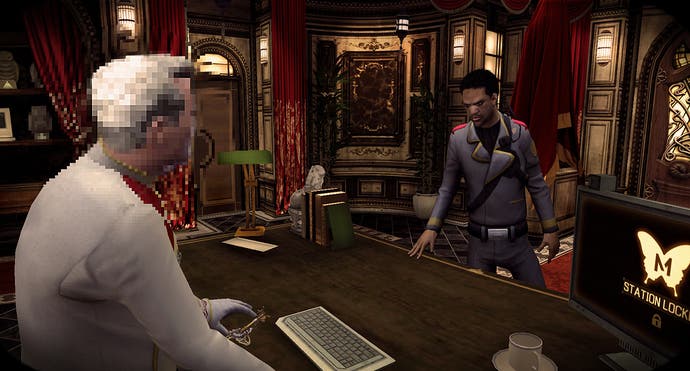
Passing through an area in a different direction leads to a very different stealth encounter, even before you factor in those randomly patrolling super-guards, and the environment itself is simply more interesting, with more places to hide and multiple levels where balconies and mezzanines offer vantage points from which to observe your foes.
The benefits of episodic gaming have taken a bit of a beating in recent months. Too often, it's nakedly clear that the format exists mostly for the benefit of developers, giving them time to write the next bit of the game while selling the previous part. In the cases of Broken Age and Broken Sword 5, it's led to a single gameplay experience simply being chopped in half. Even Telltale, the narrative masters of the form, don't really seem to develop their systems from one episode to the next.
All of which makes Republique a pleasant anomaly: a stealth game that breaks out of rigid patterns and an episodic game that visibly evolves and improves from one chapter to the next. The game isn't quite everything it could be just yet - the occasional puzzles, although slightly more involved, still feel like the weak link in the chain - but with more episodes to come, there's a strong sense that by the end, it's going to be something very special indeed.
